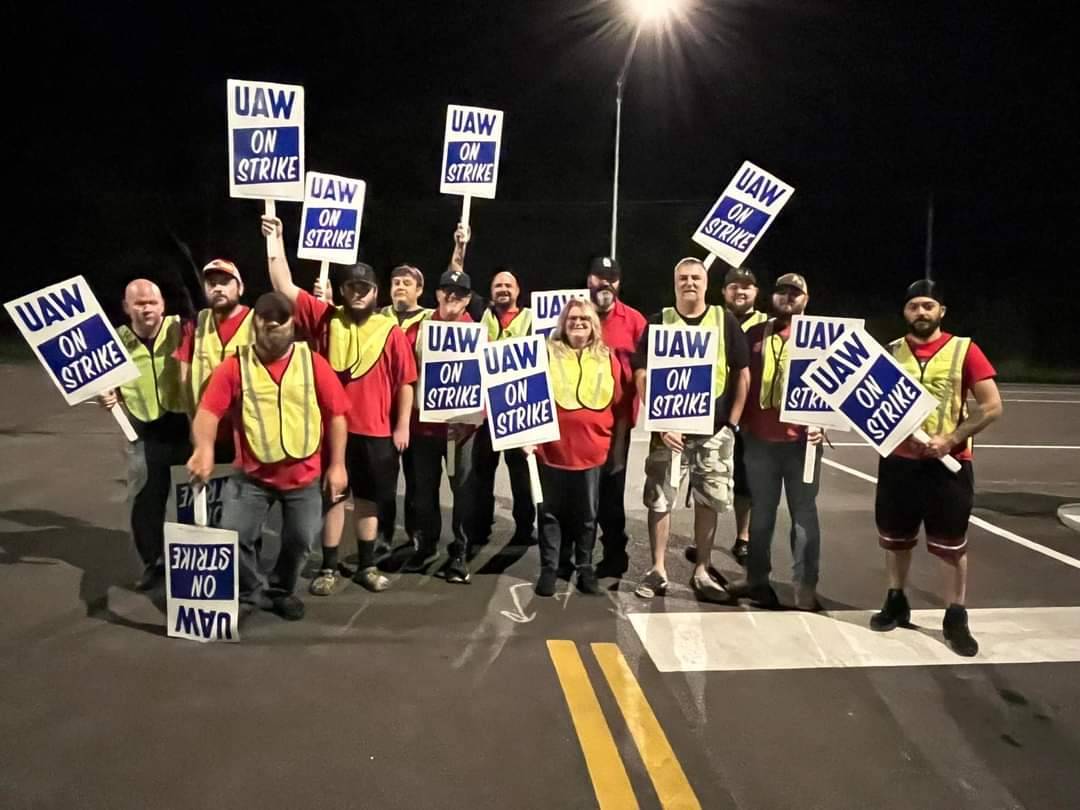The United Auto Workers (UAW) officially went on strike just after midnight Friday morning against the Big Three automakers.
Union members walked out at three plants: General Motors in Wentzville, Missouri; Ford in Wayne, Michigan; and Stellanits in Toledo, Ohio.
Stellantis builds vehicles under the Jeep, Ram, Dodge and Chrysler brands for North America.
The strike began when contract negotiations to cover the UAW’s 145,000 members failed to reach an agreement before the midnight deadline, leading to the first-ever nationwide UAW strike being called simultaneously at all of the Big Three automakers.
UAW President Shawn Fain said the Ford had offered union workers a 20% raise, General Motors an 18% raise, and Stellantis 17%. However, that’s far short of 40% raise over four years that the union wants—essentially the same pay raise that the automakers’ CEOs saw on average over the past four years, according to Fain.
Ford CEO James Farley rebuffed comments by Fain, arguing that his company has received “no genuine counteroffer” from UAW on four economic proposals.
On the picket line Friday morning, Fain told reporters, “We had to file unfair labor practice charges on the companies to get them to come to the table. They waited until the last week to get down to business. Shame on them, and what they say is complete BS.”
Auto industry analysts at JD Power are warning that if the strike drags on for a long time, vehicle prices will begin to rise.
While production can continue for now at plants where workers aren’t out on strike, before long, production at these factories will be impacted by a lack of major components coming from U.S. factories that have been shut down, according to Thomas Goldsby, professor of supply chain management at the University of Tennessee.
President Biden, who’s called himself the most labor-friendly President in history, has reportedly been walking a fine line between supporting the workers and trying to avert this strike, which could greatly impact the already unsteady economy. He spoke with Fain on Labor Day, according to the White House, and spoke with Big Three leaders last week ahead of his trip to the G-7 in India.
The White House is reportedly preparing economic measures to protect suppliers to the auto industry from long-term damage, concerned that they will be particularly vulnerable amid the strike.
President Biden was expected to deliver remarks on the contract negotiations later Friday.


